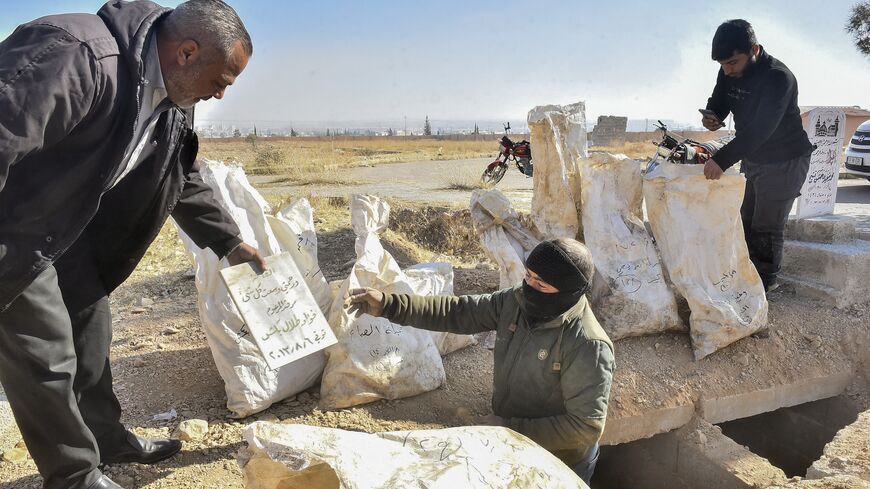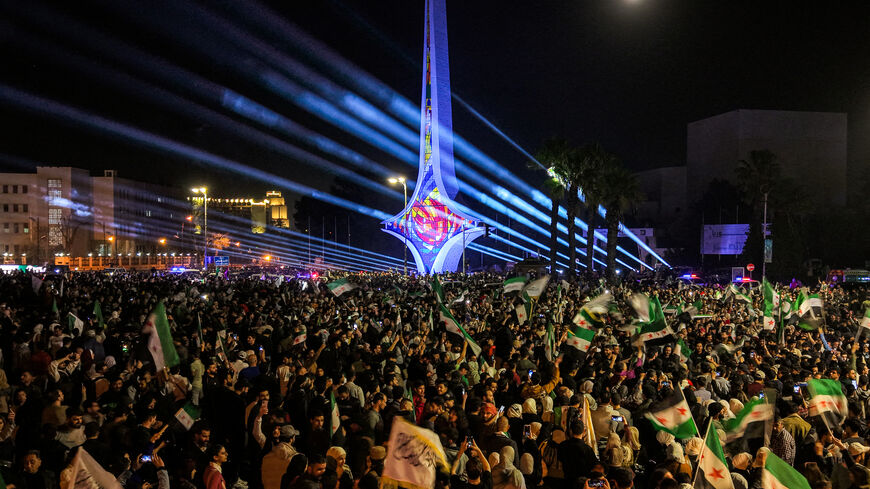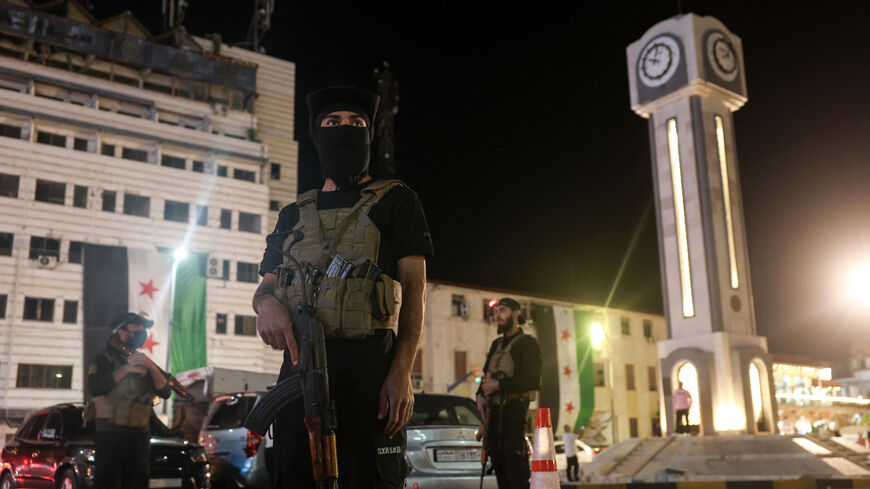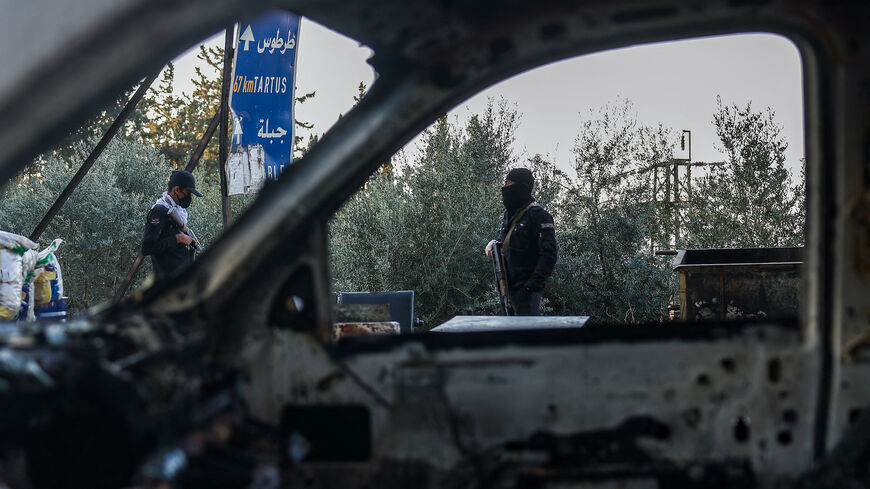Amnesty: Syria's rulers must look into abductions of Alawite women and girls
The report comes after the coastal area witnessed deadly clashes last March between pro-Assad militias and security forces that triggered revenge killings against the Alawite minority.
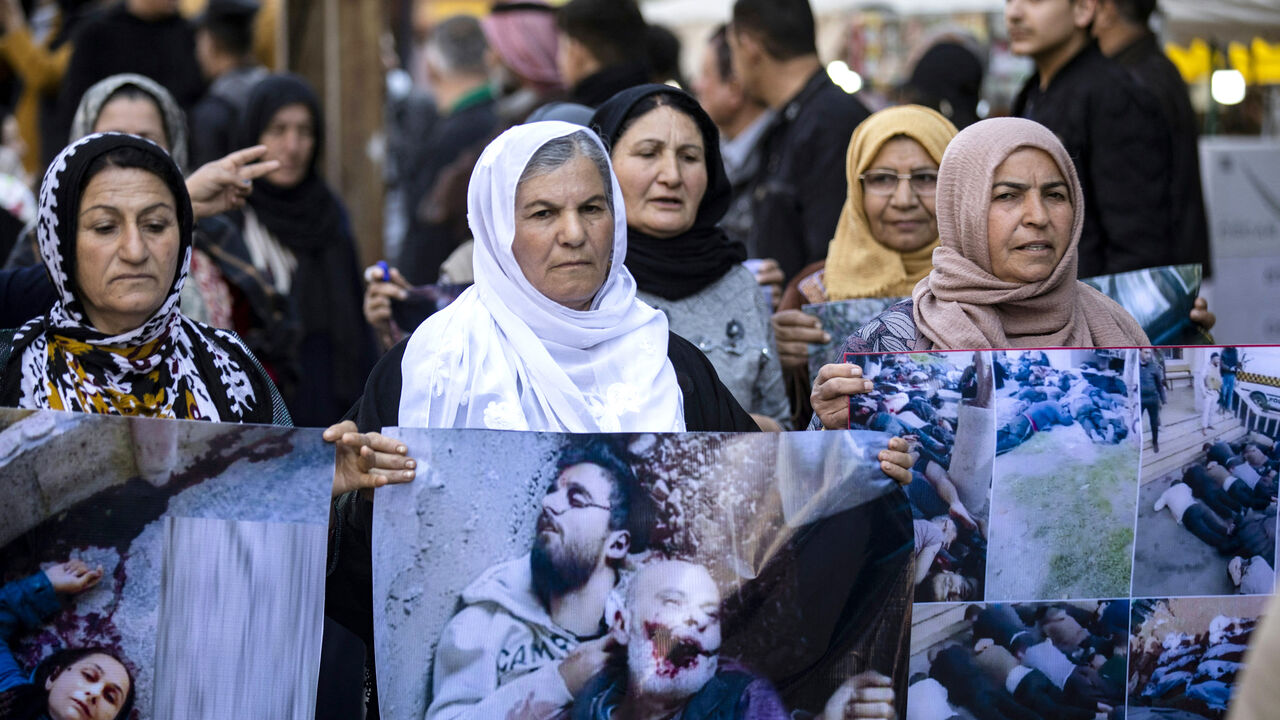
Amnesty International said Monday it had received credible reports that dozens of Alawite women and girls had been kidnapped along Syria’s coast since February, urging Syrian authorities to prioritize investigating the cases.
What happened: In a press release, the UK-based rights group said it had documented the abduction of at least 36 Alawite women and girls — aged between three and 40 — by unidentified individuals between February and June, across the provinces of Latakia, Tartous, Homs and Hama. The group warned that the victims are at risk of forced marriage, trafficking and other forms of abuse.
“The authorities in Syria have repeatedly promised to build a Syria for all Syrians, yet they are failing to stop abductions and kidnappings of women and girls, to prevent physical abuse, forced marriage and likely trafficking in persons, to effectively investigate and to prosecute those responsible,” Amnesty International cited its Secretary-General Agnes Callamard as saying.
“The Alawite community, already devastated by previous massacres, has been deeply shaken by this wave of abductions. Women and girls are afraid to leave the house or walk alone," she continued.
The rights group said it had documented eight abduction cases, all of which were reported to the police or security forces. However, most of the cases were dismissed, and in two instances, the police blamed the girls themselves for their abduction.
One family interviewed by Amnesty said they had received a photograph showing their relative with visible signs of physical abuse. In another case, a ransom was paid, but the woman was never released.
In at least three of the documented cases — including one involving a minor — the victims were likely forced into marriage by their captors.
“We call on the Syrian authorities to act swiftly and transparently in locating missing women and girls, bringing perpetrators to justice, and providing affected families with timely, gender-sensitive and credible information and support,” Callamard said.
Background: The report comes less than a week after a Syrian fact-finding committee released its findings on a wave of violence that hit the coastal provinces of Latakia and Tartous in early March.
At the time, the unrest began when the government claimed its forces had been ambushed by militias affiliated with the former Assad regime. In response, forces linked to Syria’s new rulers were deployed to the area to quell the insurgency, triggering a wave of revenge killings against the Alawite community — a group that had been a key base of support for Assad throughout the Syrian civil conflict.
Last Tuesday, the fact-finding committee established by interim President Ahmed al-Sharaa to investigate alleged violations and other abuses reported that 1,426 people had been killed during the unrest — most of them civilians — including 90 women who were killed after military operations had ended.
The committee said it had identified 298 individuals — whose names were not made public — suspected of involvement in violations against civilians, including killings, torture, looting and arson. It noted that these individuals had not been acting under military orders.
“The commission believes that these individuals and groups violated military orders and are suspected of committing violations against civilians,” a spokesperson for the committee said during a press conference last Tuesday, adding that 31 of the suspects had been arrested.
Know more: Sharaa has repeatedly vowed to protect Syria’s unity and safeguard its minority communities since coming to power following the ouster of former President Bashar al-Assad last December. However, the violence in the coastal provinces last March — and a fresh round of deadly clashes this month in the Druze-majority province of Suwayda in southern Syria — have cast doubt on those pledges.
On July 13, heavy clashes erupted between members of the Druze minority and Sunni Bedouin clans, triggering a wave of revenge killings and alleged violations against the Druze community after Syrian government forces were deployed to the province to quell the violence.
The Syrian Observatory for Human Rights reported at least 1,339 deaths in Suwayda, including 196 people who were summarily executed by gunmen affiliated with security and army forces.
In a speech on July 17, Sharaa reiterated his commitment to protecting the rights of the Druze, stating that it remained a top priority for his government.

